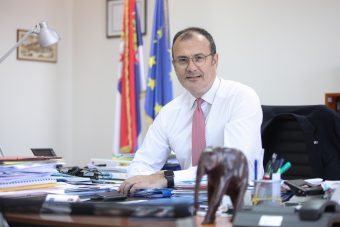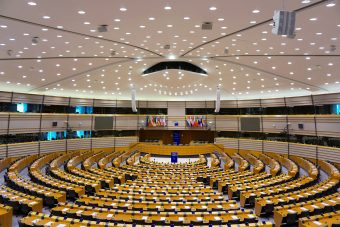
To become a full member of the European Union one day, Serbia needs to harmonise its legislation with acquis of this group of countries. One of the fields that we need to work on is the environment. Who would be the better interlocutor to talk about how far we are from the standards that we are required to reach than the head of the EU Delegation to Serbia Sem Fabrizi?
EP: When we talk about ecology, it is impossible to avoid mentioning Chapter 27. Serbian authorities predict that we shouldmopen it by the end of 2019. Do you find this to be a manageablemdeadline and why so?
Sem Fabrizi: Chapter 27 is complex and requires time and dedication from many experts, national and international, to be prepared. The EU is actively supporting Serbia with these preparations. At this stage, Serbia submitted last December to the European Commission the “Negotiating Positions” document: the European Commission will shortly comment on the revised draft. This preparatory work is done at a technical level but is an integral part of the necessary preparation. Once the work on the negotiating positions is finalised, the chapter will be discussed with the EU Member States, who will ultimately decide on its opening.
EP: Which is, in your opinion, our weakest point in the field of environmental protection? Which one of the regulations will be the hardest to implement here?
Sem Fabrizi: Protection of the environment should be seenas a new paradigm of the way societies and economies
must operate. Climate changes are happening. They have become one of the central challenges of our time: drought,
soils erosion, extreme weathers conditions, and the rise of sea levels are unfortunately becoming the new normal.
The European Union has decided to break the “business as usual” model. Energy efficiency, use of renewables, emission reductions, clean water and air policies, circular economy, are all part of a vast mix of policies that the EU – over the course of the past two decades – have designed and implemented to preserve the environment, to set a new sustainability for the economy, and to prevent and mitigate climate changes. It hasn’t been an easy nor a short process, but the environment has become a mainstream policy where the right balance between economic growth and climate protection has been found and in a sustainable direction. Data show that the EU economy has continued to grow while the carbon emissions have halved, and that the “green economy” is one of the fastest growing sectors in the EU. These positive results gave the EU the necessary credibility to take the lead at a global level in the climate negotiations concluded successfully with the adoption of the UNFCC agreement in Paris in 2015. We are now in the implementation phase and the EU continues to be the world largest climate donor. Serbia as an acceding country must continue to work hard to align its internal legislation and economic development model in this direction as a matter of priority. Environment protection is no longer a policy option, rather an immediate and concrete responsibility for the well-being of citizens, and a new opportunity for sustainable economic growth.

EP: You have been the head of the EU Delegation to Serbia for two years almost. Have you noticed any progress in environmental protection?
Sem Fabrizi: In our 2018 report we have assessed that Serbia has some level of preparation and some progress has been made in the alignment of the EU acquis, planning and implementation. We have recommended a number of key actions to advance in this area: making operational the new financing facility (Green Fund), strengthening the impact assessment in extractive industries, adopt a national air quality strategy, improve the implementation of waste management, address treatment of sewage for the water quality, align the legislation on industrial pollution. The EU is supporting – through grants: i.e. non-refundable – a number of projects that both deliver immediate results for improving citizen’s life and set a long term and sustainable protection of the environment. Over the past months, I had the pleasure to attend the opening of the EU funded Waste Water Treatments (WWTP) in the cities of Raska and Sabac. The construction of the Nis Waste Water Treatment Plant should start soon, and more WWTPs are foreseen in Kraljevo, Brus and Blace. Two weeks ago, I attended the opening of EU the 9.2 million euros grant project for the reduction of NoX emissions at the Tesla power Plant in Obrenovac. Between 2000 and 2018 the EU granted to Serbia 400 million euros for environment protection and climate action, including around 166 million euros for wastewater treatment and networks, making it the biggest donor for Serbia also in that field.
Prepered by: Jelena Kozbasic
Read the whole interview in the new issue of the Energy portal Magazine on SUSTAINABLE AGRICULTURE



